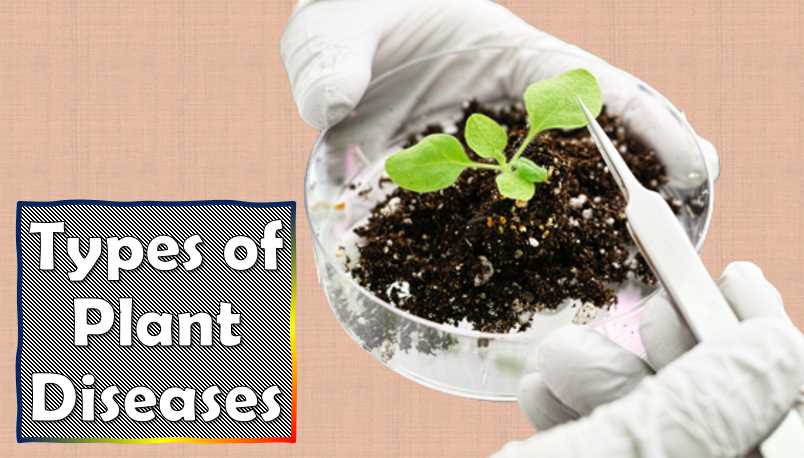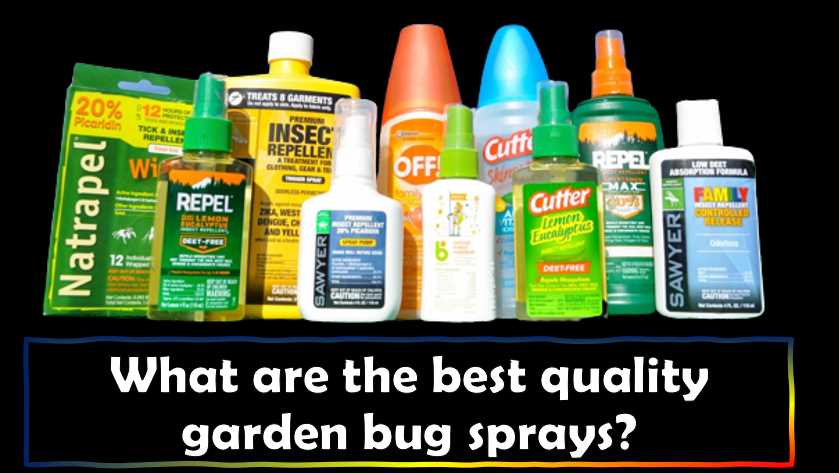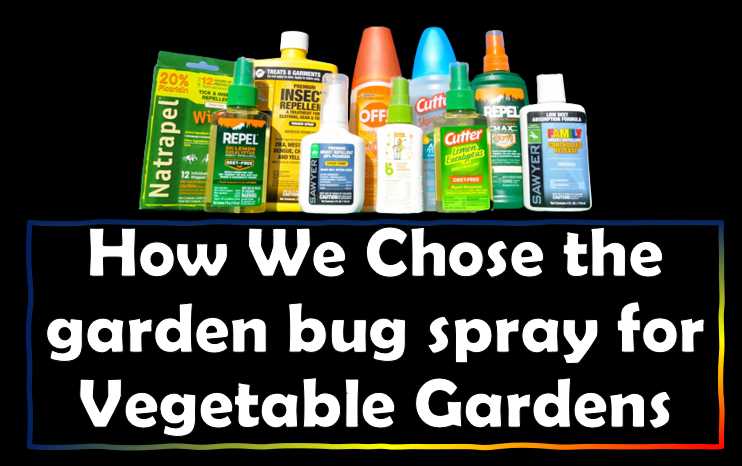Garden bug spray is standard tool homeowners use to kill garden insects. While ordinary spray effectively controls insects, garden bug spray is claimed to be more effective because it contains various organic and natural ingredients. These ingredients are effective at repelling insects and deterring them from returning.
This Bug Spray is a versatile product that can kill various garden pests, including aphids, whiteflies, and leaf miners. This article will provide a complete buying guide, including comparing the market’s top-quality garden bug spray options. We’ll also give you tips on using garden bug spray effectively. So if you’re looking for a safe and effective way to keep your garden bug-free, read on!
What are the best quality garden bug sprays?
There are many different types of garden bug sprays on the market, but some of the best include Repel, Bayer Advanced Garden Insect Control, and Ortho Home Defense Insect Control. Each of these sprays contains different active ingredients that help repel and kill Garden Bugs.
- INSECT KILLER: Kills over 70 more listed insects including Aphids, Caterpillars, Thrips, Tomato Hornworm, and Whiteflies
- PROTECT FRUIT & VEGETABLES: Protect fruits and vegetables from insect damage, for outdoor use
- EASY APPLICATION: Ready-to-Spray bottle easily connects to the hose for easy application
- RAINPROOF PROTECTION: Rainproof in just 1 hour
- COVERAGE AREA: Treats up to 5,333 square feet
- CONTAINS BOTANICAL INSECTICIDES: Spray on roses, vegetables, houseplants, ornamentals, trees, shrubs and flowers right up to the day of harvest.
- KILLS ON CONTACT: Kills aphids, tomato hornworms, green fruitworms and other listed insects.
- PROTECTS YOUR WHOLE GARDEN: Use both indoors and outdoors.
- READY-TO-USE PEST CONTROL: Spray upper and lower leaf surfaces – no mixing required.
- APPLY AS NEEDED: Treat weekly or apply as needed to control infestations (up 10 to times per season).
- Controls a wide range of fungal diseases and pests
- Controls aphids, mites, beetles, crickets, weevils, silverfish, caterpillars, whiteflies and other insect pests
- Controls fungal diseases, including black spot, powdery mildew, rust, Scab, blight, brown rot and leaf spot
- Use on roses, flowers, houseplants, ornamental trees and shrubs, fruits, nuts and vegetables
- Convenient, easy to use, requires no mixing
Types of Plant Diseases
There are a variety of plant diseases, each with its own set of symptoms and possible treatments. Some of the more common plant diseases include:

Root Rot: It’s a bacterial disease that affects the roots of plants. Symptoms include wilting and yellowing the roots and losing vigor and growth. Treatment typically involves treating the underlying soil condition or applying a fungicide.
Botrytis Blight: It is a fungal disease that causes brown rot on the leaves and fruit of plants. The fungus uses the sugar in the plant’s sap to create spores, leading to the plant’s death. Symptoms include wilting, drooping leaves, distorted growth, and dead tissue. There is no cure for Botrytis blight, but treatment typically involves removing infected plants and applying a fungicide.
Downy mildew: It is a fungal infection that causes the leaves of plants to turn yellow and become covered in fluffy white down. It is most commonly found in areas with high humidity and warm temperatures., You can use fungicides to prevent or treat downy mildew.
Fungal diseases: These include mildews, mites, and whiteflies, and they cause damage to the leaves, flowers, and fruit of plants. Fungal infections can be fatal if not treated.
Viruses: These are tiny particles that are capable of causing plant diseases. Viruses can be transmitted through wind, water, or contact with infected plant material.
Nematodes: These are microscopic worms that can cause severe damage to plants. Nematodes can enter through the soil or wounds in plants and cause root rot, leaf spots, stem lesions, etc.
Phytophthora infestans: This fungus causes Phytophthora root and stem rot, a bacterial infection that results in wilting and dieback of the roots and stems.
Benefits of using Garden Bug Sprays

Garden Bug Sprays are an essential part of the gardening ecosystem and for a good reason. Not only do they help to control garden pests and caterpillars, but they also provide gardening enthusiasts with a host of other benefits.
For example, Garden Bug Sprays can improve the growth of plants by providing them with nutrients and moisture. They can also help prevent pests and diseases from affecting plants and act as a natural deterrent to wildlife. In addition, Garden Bug spray can control aphids, mites, slugs, and other garden pests. They effectively repel deer, rabbits, and other pests that might be a nuisance to gardeners.
Here are six benefits of using garden bug sprays:
- Control Insects: Garden bug sprays effectively control a wide variety of insects, including aphids, Colorado potato beetles, whiteflies, and barn spiders.
- Protect Plants: Insects damage plants by sucking their juices, eating their leaves, or laying their eggs. Garden bug sprays help protect plants from these damages.
- Improve Garden aesthetics: Insects can make gardens look unkempt and ruin their appearance. Garden bug sprays help control these pests and improve the aesthetics of your garden.
- Protect against disease: Insects can carry harmful diseases, infecting humans and other plants. Garden bug sprays help to protect plants and people from these diseases.
- Garden biodiversity: Insects are beneficial to gardens and help keep them healthy. They also play an essential role by eating different pests that would harm your plants or otherwise destroy the environment of a garden.
- Clean up vegetable residue: Garden bug sprays can help clean up weeds, insect eggs, and other plant matter from the soil after you harvest vegetables for a cleaner landscape.
How We Chose the garden bug spray for Vegetable Gardens: Video Guide
When choosing the best garden bug spray, you want to make sure that you select a product that will provide you with the best protection possible. There are various factors to consider, including the type of bug spray you are using, the environment in which you will be using it, and your personal preferences.

Some popular bug sprays include pyrethroid, neonicotinoid, and pyrethroid/neonicotinoid combinations. Pyrethroid bug sprays are the most effective and are known to be effective against a wide variety of bugs, including mosquitoes, ticks, fleas, and bedbugs. Neonicotinoid bug sprays are less effective than pyrethroid sprays but are still very effective against various bugs. They are also known to be environmentally friendly and have low toxicity.
Chemical vs. Organic Ingredients
It is essential to choose the right bug spray for garden bugs. Not only do you want to ensure that the spray is effective against the bugs, but you also want to be sure that it is organic. Bug sprays made with chemical ingredients can harm you and the environment.
On the other hand, organic sprays are made with natural ingredients and are more sustainable. They are also less likely to cause skin irritation or adverse environmental effects. Some of the most popular organic bug sprays include Off! Deep Woods Garden Insect Repellent and Naturopathica 100% Natural Insect Repellent. Choosing a safe spray for you and the environment is required, so choose wisely!
It will help if you use a specifically designed spray to kill mosquitoes, black flies, and other insects. Not all sprays effectively kill these pests, so testing the product before using it in the garden is essential.
Mosquito Sprays
Mosquito sprays are one of the most popular types of garden bug sprays. These sprays kill mosquitoes, black flies, and other flying insects. They come in a variety of formulations that include EPA and DEET. Some mosquito sprays also contain pyrethrins, a type of insecticide.
Black Fly Sprays
Black fly sprays are also designed to kill mosquitoes and other flying insects. They come in a variety of formulations that include pyrethrins and other insecticides.
Some popular sprays for aphids include Dimethoate, permethrin, and cypermethrin. These sprays effectively control aphids and are safe for use around plants. Some popular sprays include Malathion, Bacillus thuringiensis kurstaki (Btk), and Spinosad for whiteflies. These sprays effectively control whiteflies and are safe for use around plants.
Bug Repellency
Another factor to consider is the bug-repellency of a spray. Some sprays are effective at repelling certain types of bugs, while others are not as effective. It may seem like only a minor difference, but it can significantly impact how well the spray works. Ideally, buying an effective bug spray with aggressive active ingredients would be best to keep pests and insects from your garden.
Application
We always recommend sprays for insects such as mosquitoes, fleas, ticks, and lice. These sprays are usually easy to use and come in a pump-action or aerosol can. You can also find sprays on plants such as aphids, scales, and spider mites. These sprays usually come in a liquid or powder form and are applied using a hand-held applicator or a hopper-style sprinkler.
Toxicity
You should also pay attention to the toxicity of the bug spray you are considering. Some bug sprays are highly toxic to humans and animals, so read the label carefully. Also, some bug sprays are made of acids that can damage sensitive surfaces in your yard. Bugs will most likely avoid areas treated with highly toxic chemicals or those sprayed with a strong spray without immediately having the area rinsed off.
Safety
Never forget to consider the safety of your family and pets. Some of the most popular and effective bug sprays contain harmful ingredients that can harm you and your pets. Additionally, some sprays contain toxic chemicals that can harm plants. It is necessary to research the ingredients of a bug spray before purchasing so you know what is in it and how it will affect you and your environment.
Long life
You do not want to use a spray that you must constantly reapply, as this will be a hassle and waste of time. Additionally, you want to ensure that the spray effectively against the bugs causing problems in your garden. Some more common bugs that cause garden problems include mosquitoes, aphids, and whiteflies.
Consider the product’s active ingredients and what is targeted explicitly at garden pests. Some products use both natural and synthetic pesticides, so it is significant to consult with a gardening expert to determine which option is the best for your specific situation.
Compatibility
Make sure it is compatible with your environment and gardening tools. Bug sprays that are compatible with some tools may be incompatible with others. CO2 gas, for example, is a highly toxic type of bug spray and can cause damage to other plants if misused or in excess. Non-toxic alternatives include horticultural oil and pyrethrin-based products.
Price Range
The more expensive the spray, the more effective it will likely be in the price range. However, some sprays also have features like treating spiders and other pests. A spray designed to kill mosquitoes may be better if you want a budget-friendly option.
The type of bug spray also matters. Some sprays are designed to kill just a kind of bug, such as mosquitoes or spiders, and others are formulated to kill multiple types of bugs, such as mosquitoes, ticks, and fleas. A spray that can destroy various bugs is likely the best option if you have a broad range of bug problems.
Product Label
When picking the best bug sprays, the last factor is paying attention to what kind of product label information is advertised by different brands. For example, some labels will boast effective ingredients even though the active ingredients are not powerful enough to protect a host of other garden pests.
However, these products may be effective against one type of insect or pest. By finding out what is described on the label, you should be able to find out more about every aspect of your bottle’s effectiveness and safety before making any purchase decision.
How to use garden bug spray properly?
You may spray bug sprays directly onto plants that pet pests or insects have attacked, but you should avoid using them on plants not affected by targeted bugs. Since bug sprays kill off living plant matter, they will not be effective when applied to healthy (non-infested) vegetation.
Instead, the health of your trees and flowers must be restored with other organic methods before being re-planted in a new location so that pests do not recolonize from naturally occurring insect populations nearby. It is crucial to follow the guidelines below To utilize bug sprays effectively:
Misting your plants:
To prevent infestations by insects and other pests when using a spray recommended for pest elimination on your flowers or vegetable garden, misting just before nightfall or after high winds will provide an all-natural way of attaining sufficient protection against insect attacks.
When you choose a product that works well while also effectively repelling bugs from your plants, select a product that will have an increased effectiveness rate when applied directly in high-wind conditions.
Pouring the liquid onto your plant
Many bug sprays are easy to apply by simply pouring the solution into the holes, and infestations often occur on foliage or fruit stems. If you tend to purchase more than one spray, mix different products and pour them out separately, so they do not take away from each other’s effectiveness.
Spraying in the late evening
Most bugs will remain awake at night, but since most people are asleep during this period, many bug sprays can be applied as little as an hour before dawn when they are still active. This practice should ensure maximum effectiveness from your bug spray purchase while also having the added benefit of using a means that does not cost energy to obtain adequate protection for plants throughout a long night.
Relying on repellent pesticides:
When trying to repel various insects from your plants, spraying them with airtight sprays can prove highly ineffective while relying exclusively on insect spray. Other pest control remedies may also have adverse effects in the long run when applied any number of times throughout the season.
Use bas relief applications of a solution that will attract and entice beneficial predators such as predatory mites or ladybugs to stop insects without having these problems. Building up the population of these natural catch-and-release agents will increase their effectiveness in repelling insects from your plants and aid them in long-term management.
The efforts may reduce excess insect populations rather than be dealt with endlessly throughout the year.
Exposing every plant you own to a pesticide
Yes, it is possible that spraying your plants multiple times over an extended period will eventually deplete them of any essential nutrients and adversely affect their condition. This system has little to do with the sprays you are using.
As an alternative, it is often a result of simply over-spraying your plants, creating harmful conditions such as depleting water reserves.
Spraying experimental scientific-grade pesticides
Rather than using a single active ingredient explicitly targeted to your target pest, the dangers of this approach can include toxicity. It might have adverse effects resulting from some non-bio-accumulating chemical being fed directly into the roots or, over time, causing systemic responses throughout the tissue of an entire tree.
Suppose you are still searching for these chemicals online and cannot find any information. It is likely safe to say that no reputable company would or should be selling these types of materials, which means there is probably nothing left you can use over the internet.
FAQs
How do I use garden bug spray?
To use a garden bug spray, first identify the type of garden bug causing the problem. Once you have identified the kind of Garden Bug, use the spray according to the instructions on the label. Read all instructions before spraying, as some require direct contact with the Garden Bug.
What is the best time to apply it?
The best time to apply a garden bug spray depends on your specific spray and the type of pests you are trying to kill. However, spraying a garden bug spray early in the morning or during the evening when problems are most active is usually the most effective.
What are the safest garden bug sprays?
The safest garden bug sprays are those that are non-toxic and effective. Many of the safest garden bug sprays are made with natural ingredients and are typically easy to apply.
Can I use any bug spray to kill garden bugs?
The best bug spray for killing garden bugs will vary depending on the type of bug spray, the location of the spray, and the specific bugs being targeted. However, some popular types of bug sprays that can be used to kill garden bugs include pyrethrins and synthetic pyrethroids.
How often should I use it?
Garden bug sprays can be used multiple times throughout the day, especially if you see increased activity. Read the label carefully before using the spray to ensure safety for your environment and children.
What are the ingredients in a garden bug spray?
Most garden bug sprays contain DEET, pyrethrin, or picaridin as their active ingredients. These chemicals are effective in repelling bugs and killing them, and they are also safe for use around humans and pets.
Is spraying the only way to apply garden bug spray?
There are many ways to apply garden bug spray, and the most popular method is spraying. However, there are other ways to apply garden bug sprays, such as using a dusting sprayer or fogger.
Spraying is the most popular method because it is fast and easy. You need to fill the sprayer with the desired amount of bug spray, point it toward the pests, and turn it on. Stay away from your face and clothes when spraying because the spray can irritate.
Dusting sprays and foggers are similar to spraying in that they use air to disperse the bug spray. However, they are more effective at controlling tiny pests. Dusting sprays can be used on plants or around pathways, while foggers can control larger pests. Foggers use a fan to create a dense cloud of insecticide that effectively reaches deep into cracks and crevices.
Where to buy it?
You can buy garden bug spray in various places, but some of the most popular include Walmart, Home Depot, and Lowe’s. Read the label carefully to ensure that you are using the correct product for the number of bugs you are trying to kill. Some available products include DEET-based sprays, pyrethroid-based sprays, and oil-based sprays.
How can I make my garden bug spray more powerful?
There are a few things that you can do to make your garden bug spray more powerful. One is to add more insecticides to the mix, and another is to make the spray more concentrated. And finally, you can add fragrances or other ingredients that will attract bugs and make them more likely to be sprayed.
Each of these methods has its benefits and drawbacks. Adding more insecticides will help kill more bugs but can also negatively affect the environment and human health. Making the spray more concentrated will go further, but it can also be harsher on the skin and eyes.
Adding fragrances or other ingredients can help attract bugs and make them more likely to be sprayed, but it can also cause adverse effects. Choosing the right ingredients and doses for your specific situation is essential.
Overall, there are many ways to make your garden bug spray more powerful.
Is garden bug spray suitable?
Garden bug spray is popular for those looking for an environmentally-friendly solution to controlling garden pests. While there are many different types of bug spray on the market, some of the most popular include neem oil, pyrethrum, and sulfur.
Neem oil is a natural insecticide that is derived from the neem tree. It is effective against a variety of bugs, including garden bugs. Pyrethrum is a type of flower bug spray made from the flowers of the pyrethrum plant. It is effective against a variety of insect pests, including garden bugs. Sulfur is a type of insecticide that is derived from the sulfur plant. It is effective against a variety of insect pests, including garden bugs.
Each of these products has its benefits and drawbacks. Neem oil is effective against various bugs but can harm the environment if not correctly disposed of.
How can you store it?
There are many ways to store garden bug spray, and the most important thing is to make sure that it is always accessible in case of an emergency. Here are three ways to store your garden bug spray:
1. Spray bottle: This is the most common way to store your bug spray and is easy to carry around. Fill the spray bottle with bug spray and store it in a location that is easily accessible.
2. Cabinet: Another way to store garden bug spray is in a cabinet. Simply place the bottle next to the kitchen sink or in a cabinet near the doors and windows.
3. Storage container: Another option is to store your bug spray in a storage container. You can purchase a storage container specifically designed for this purpose or use an empty water bottle. Just make sure that the container is airtight and accommodates your bug spray.
How long can you use the garden bug spray?
You can use garden bug spray for a maximum of two weeks. The active ingredients in the spray will eventually lose their potency. Make sure to read the label carefully to determine the expiration date.
Are garden bug sprays better than bleach sprayers?
Garden bug sprays are generally considered more effective than bleach sprayers, as they contain a wider range of harmful chemicals to garden bugs. These sprays can also treat other pests in the garden, such as aphids, whiteflies, and mites.
On the other hand, Bleach sprayers effectively kill garden bugs but may also damage other plants. They can also be harmful if sprayed directly onto the skin, and garden bug sprays are generally less expensive than bleach sprayers.
Final Words
After reading this blog, you will know that neem oil is a powerful and effective garden bug spray. It is safe to use and has a long-lasting effect, making it the best choice for targeted pest elimination. Additionally, our recommended BioAdvanced 708480A Insect Killer has fantastic safety features that make it ideal for keeping your family safe. Make sure to give it a try this season!

I love gardening and hope you enjoy reading my post as much as I enjoy writing it. I focus on plant-based living and believe that you will be healthier and happier by incorporating more plant-based foods into your diet. By providing helpful tips and advice on everything from garden design to growing techniques, I want to help make gardening easier for everyone.






